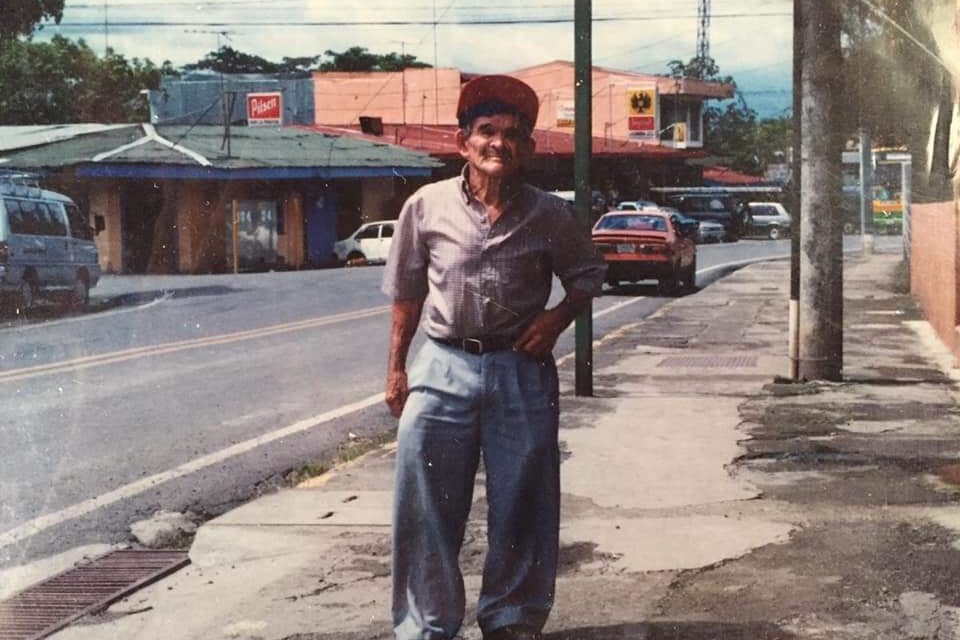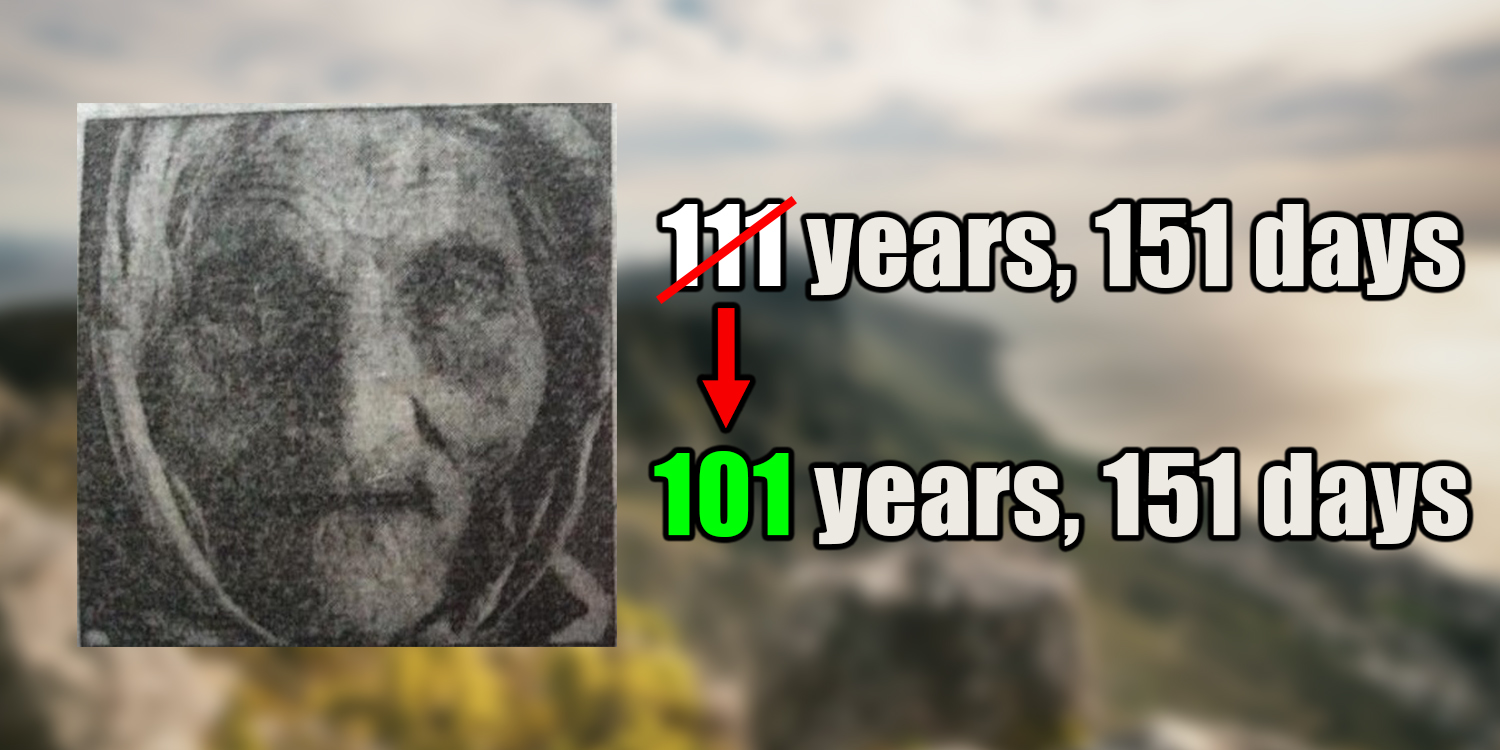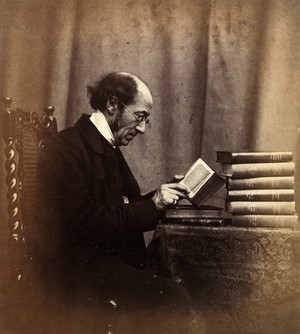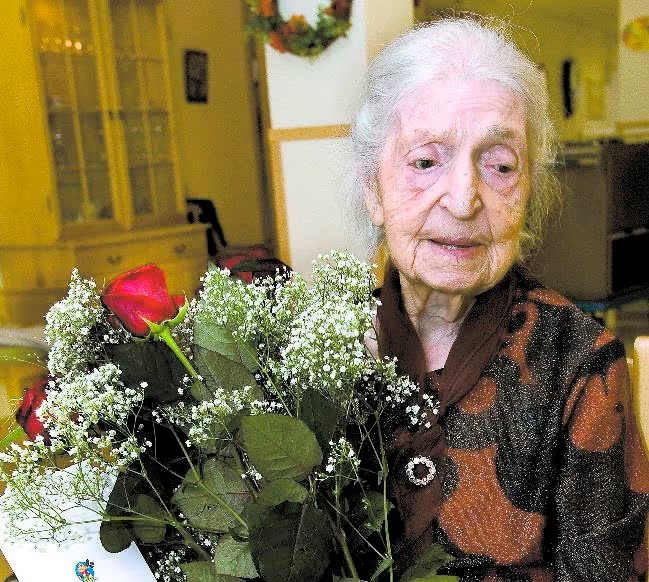In May 2021, news outlets throughout the world reported the death of a man in Costa Rica who, according to his government records, was 121 years old. José Uriel de los Angeles Delgado Corrales (“Chepito” for short) was a man who had, for the last several years, received significant media attention due to his apparent extraordinary age. As the story went, Chepito was born all the way back on 10 March 1900, in San Antonio de Escazu, Costa Rica, to parents Jesus Delgado and Gabriela Corrales. Unlike most other claims of extreme longevity with early life documentation, everything said about Chepito’s life, from his place of birth, parents’ names, and most importantly, his date of birth, appeared to be the truth: an entry in a San José church’s baptismal records from March 1900 belonging to a José Uriel de los Angeles Delgado Corrales with the same date of birth and parents seemed to fully confirm his age.

(Source: Q Costa Rica)
Yet, despite this, something seemed very wrong about this case. From the moment that longevity researchers were made aware of Chepito back in the early 2010s – when he was a comparatively spry 113 – it wouldn’t have taken an expert gerontologist to recognize that he looked far younger than just about any other person of this same age. From this began very strong suspicions of identity theft.

Delgado in 2015, at the alleged age of 115.
(Source: Reuters)
This idea wasn’t without precedent in the world of supercentenarians, as cases of supposedly “verified” supercentenarians turning out to be a younger family member of a long-dead person had been established in the past. Most commonly, these cases of “identity theft” weren’t actually deliberately malicious examples of stolen identity, but instead were just a younger sibling who was named after a deceased older sibling (in what is known as a necronym), and had mistakenly been matched to said elder sibling’s documentation by the government, typically during the creation of government records like ID cards. In a place and time where much of the population was illiterate, people typically wouldn’t be certain of their actual date of birth, meaning that people could be mistakenly matched to the wrong birth record without ever realizing the error. These “identity swaps” are almost exclusively limited to siblings, as most illiterate people would still be able to recall their place of birth and the names of their parents, meaning that the only real chance of them being accidentally matched to the wrong birth record is if they happened to be named after a dead older sibling. However, there have been rare cases of people intentionally assuming the identity of another deceased relative – such as a parent or uncle – in order to receive an early pension.
The case of Chepito, however, seemed completely different, and details of his life story began to give us some clues. A resident of the Hogar de Ancianos de Piedades de Santa Ana nursing home ever since he had been found wandering the streets of downtown Piedades in 1995, Chepito had been homeless for an indefinite amount of time, forced to scavenge for food out of the garbage in order to survive. According to workers at the home, he was able to say his name: José Delgado Corrales, and informed them that he had grown up in the district of San Ignacio, where he worked as a laborer for some years. In interviews, however, he seemed either unable or unwilling to give any further information about his life. According to the nursing home, he claimed to have “forgotten” the names of his parents.
Exactly what happened thereafter remains a mystery, but at some point in 1995, he was given his first ID card, showing the following information:

Delgado’s 1995 ID card.
It appears that, as he was unable to remember much about his life, he was assigned to a birth record which seemed to match his information most closely. At the time, according to his new ID card, he was 95 years old, which is an age that wouldn’t have been considered particularly noteworthy or implausible.
This news likely came to the delight of José Uriel Delgado’s surviving family, as the last time anyone had seen him was over 60 years prior – when he was reported missing. According to family members, José Uriel was last seen when he left his town to visit a “healer” in San José in order to cure him of an illness. After he didn’t return, they simply assumed he had died of the sickness, but held out hope over the following decades that he had survived. This fact may be the reason why, when the man seemingly reappeared in a nursing home over half a century later, nobody questioned his identity, instead choosing to believe that he had been alive all along. The surviving descendants of his brothers and sisters would sometimes visit Chepito, seeing him as a long-lost uncle that had been rediscovered, none the wiser to the fact that this man was, as we would later find out, a complete biological stranger who had, under odd circumstances, assumed the identity of their deceased uncle.
He would continue to live a quiet and peaceful life at the Hogar de Ancianos de Piedades nursing home for the following 15 years, before his apparent age started to garner interest from the local media. In 2010, he received media attention when he – at the supposed age of 110 – voted in his country’s general election. Over the following years, he would continue to be reported by Costa Rican media outlets, until his story began to be picked up by media outside of his country when he was 115. Following the death of 117 year old Emma Morano in 2017, he became a candidate for the title of World’s Oldest Person. For the following 4 years, he continued to be reported in the news, until his death at the alleged age of 121, having reached an age so extreme that only one person in recorded history is confirmed to have lived longer.
Now, in 2024, following research conducted by LongeviQuest, we have located a far more likely identity match for Chepito: José Maria Ramón de los Angeles Delgado Corrales, born in Turrialba, Cartago, Costa Rica on 5 March 1924, making his actual final age 97 years, 83 days. Unlike the José Uriel Delgado born in 1900, this José Delgado had a history of longevity in his family: his mother lived to be 98, and a brother lived to be 92. While this can’t be confirmed without confirming his parents’ names, circumstantial evidence strongly suggests this to be his true identity. For instance, Chepito himself claimed to have grown up in the small district of San Ignacio in Acosta, San José, and this 1924-born José Delgado’s younger siblings were born in the same place, meaning that the family had lived here during José’s childhood. The fact that this family also appeared to have a genetic propensity towards longer-than-average lifespans also gives further support for this match.
The undisputed, validated all-time recordholder for oldest person from Costa Rica is former First Lady Marita Camacho Quirós (born 10 March 1911), who, at the time of writing this post, is alive at the remarkable age of 113. She is the only Costa Rican person known to have ever reached the ages of 112 and 113.

Marita Camacho Quirós (right), with US President Lyndon B. Johnson and First Lady Lady Bird Johnson in 1968.





